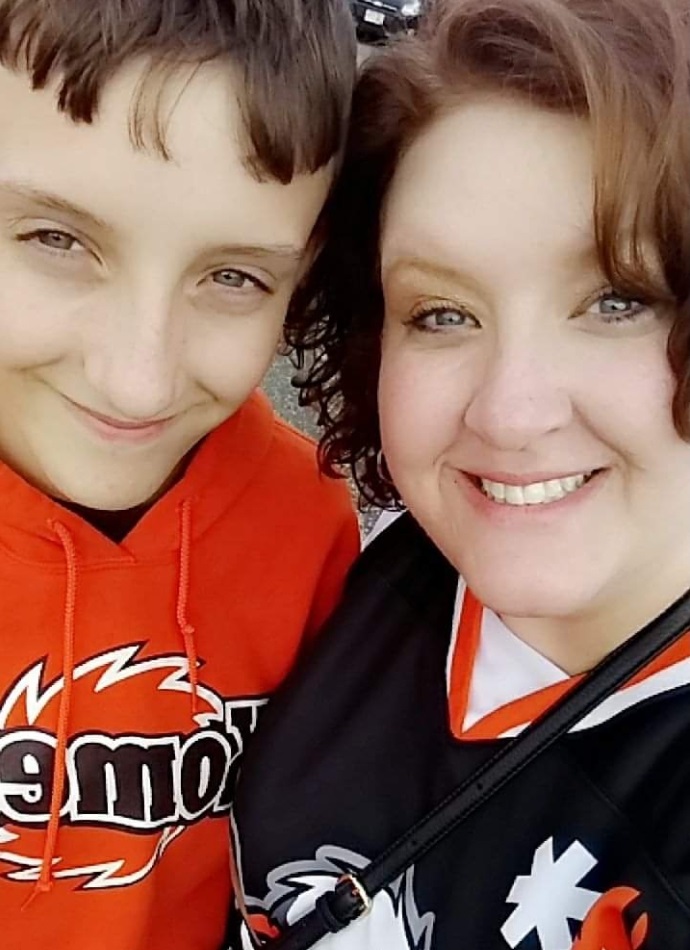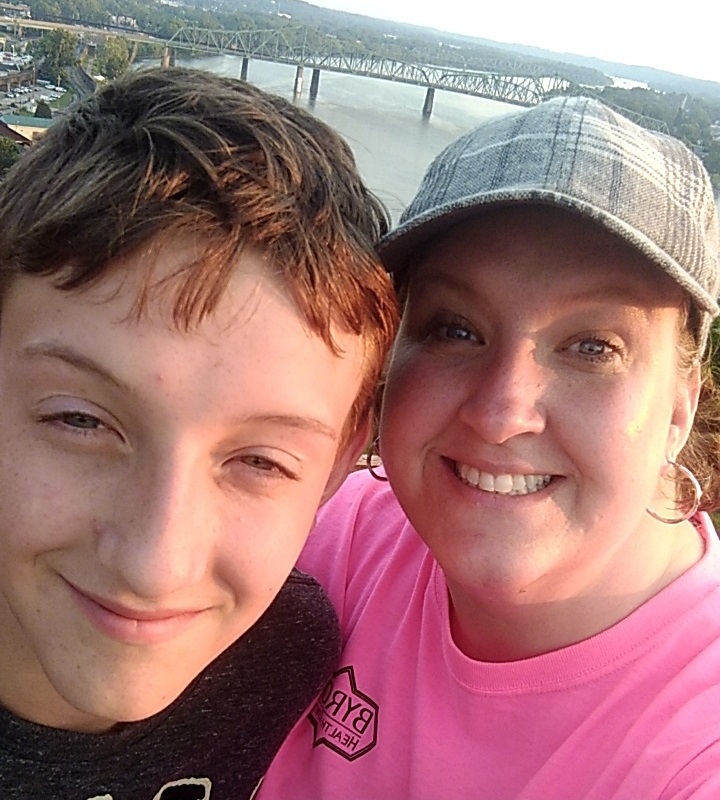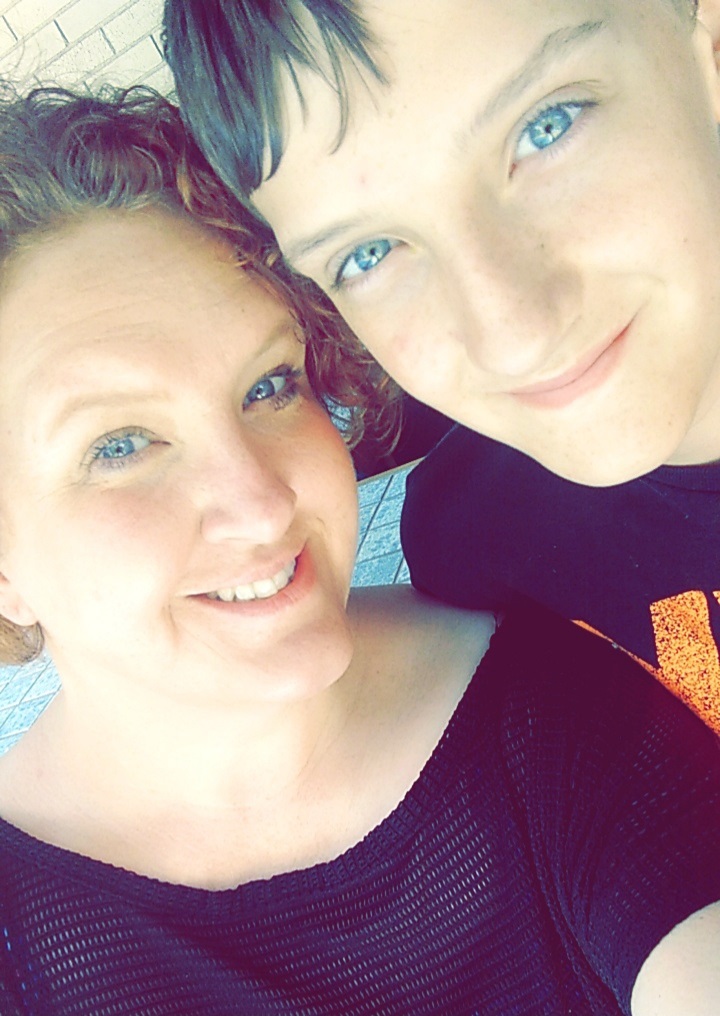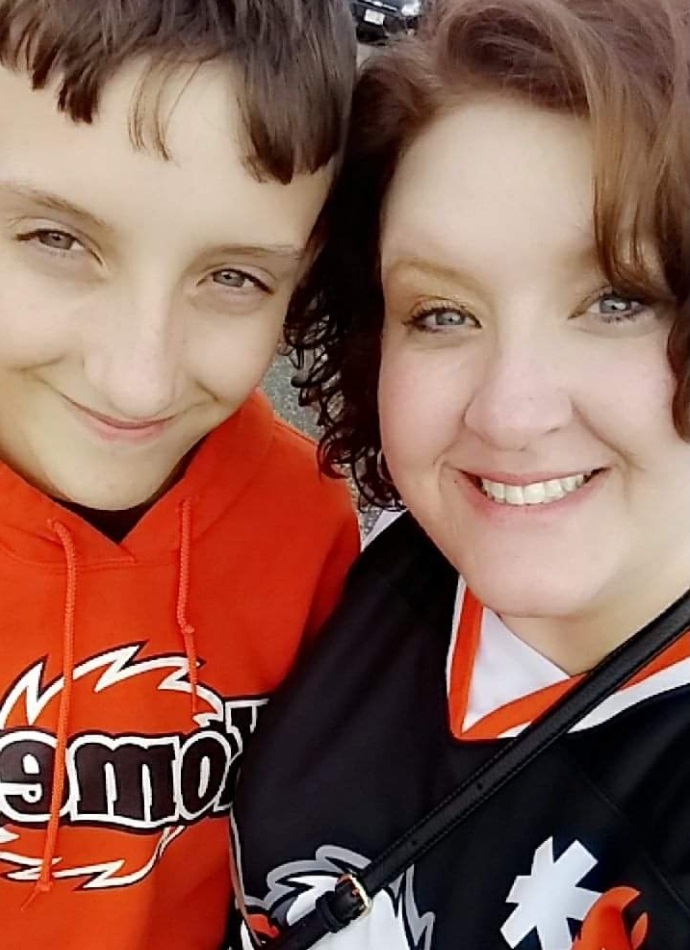by Shannon Young, Move-In Coordinator
Autism Awareness published April 12th

April is Autism Awareness Month. But for me and my family, we live #AutismAwareness every day of our lives. My thirteen-year old son, Corey, was diagnosed with severe infantile Autism at the very young age of nine months old. Our lives have never been the same since that day.

Autism Spectrum Disorder (ASD) is a complex developmental disability that can cause significant social, communication and behavioral challenges. ASD is defined by a certain set of behaviors and is considered a “spectrum condition” that affects individuals in many different ways and to varying degrees. Signs typically appear during early childhood. People with Autism appear perfectly normal from the outside, but often communicate, interact, behave and learn in ways that are different from others. The learning, thinking and problem-solving abilities of people with ASD can range from gifted to severely challenged. Some behaviors associated with Autism include delayed learning of language, difficulty making eye contact, poor executive functioning (relating to reasoning and planning), narrowed and/or intensified interests, poor motor skills and sensory sensitivities. Some individuals with ASD may need significant help in their daily lives while others require less assistance.
ASD occurs in all racial, ethnic and socioeconomic groups, but is four times more common among males than females. In 2018, the Centers for Disease Control and Prevention issued a report announcing that the prevalence of Autism had risen to 1 in every 59 births in the United States. There is no known single cause of Autism, but increased awareness, early diagnosis and intervention, and access to appropriate services and support may improve outcomes.
Mental health issues are often combined with ASD. Approximately 70% of the Autistic population has at least one, if not multiple, co-occurring mental health issues. Numbers are often higher in adults with Autism as social anxiety and depression can emerge during adolescence. In adults, some ASD symptoms can overlap with symptoms of other mental-health disorders, such as anxiety or attention deficit/hyperactivity disorder (ADHD).
The symptoms of mental health conditions, like anxiety, can sometimes go unrecognized in people with Autism, as the symptoms are sometimes falsely attributed to being part of what Autism looks like. Trying to improve quality of life for people with Autism who are dealing with untreated mental health issues can be difficult. Anxiety, in particular, is known to add to functional impairments in those with Autism. Co-occurring anxiety increases self-injurious behaviors, suicidal ideation, poor social functioning and family stress. In addition to these functional concerns, anxiety and other mental health concerns, like depression, can add suffering and self-doubt to the challenges already faced by individuals on the Autism spectrum.
Children with Autism Become Adults with Autism
While it’s true that symptoms of Autism appear first in early childhood, Autism is not a pediatric disorder. Instead, it’s a lifelong challenge that can make the adult years somewhat or very challenging. We all know that most two-year olds throw tantrums or most teens have “issues”. As a result, most Autistic children and teens get a break. After all, they are just kids. But once you become an adult, you are expected to put away your emotional challenges and act like a grown-up. Grown-ups are expected to independently manage time and money, run their own home, find and hold a job, manage social interactions at work and in the community, find friends and romance, save for a rainy day, cook an omelet and be there for their kids. People with Autism find many of these expectations impossible to fulfill. Add to this the often hypo and/or hypersensitivity to sound, light, smells, tastes and touch, and one can only imagine the difficulty involved with living a “normal” life.

While some high functioning Autistic adults are quite successful, several are severely challenged. Surprisingly, “severe” Autism is not always the biggest obstacle to employment or even personal happiness. Higher functioning individuals, like my son, are often at a disadvantage because they struggle to “pass for normal” while trying to cope with severe anxiety, sensory dysfunction and social deficits.
Living Situations for Adults with Autism
Simply put, people with Autism, like everyone else, are adults for much longer than they are children. Whether an adult with ASD continues to live at home or moves out into the community is determined largely by their ability to manage everyday tasks with little or no supervision. Can they handle housework, cooking, shopping and paying bills? Are they able to drive or use public transportation? Many families prefer to start with a supported living arrangement and move toward greater independence.
Supervised group homes can often be a good starting point for adults with Autism. These group homes are typically located in average, family houses within residential neighborhoods. Trained professionals assist each resident based on individual needs. Some of the residents have jobs away from home during the day.
Some adults with Autism are better suited for a supervised apartment. Fewer people live in the apartment than in a group home. These individuals still require some supervision and assistance, but are encouraged to live more independently. A residential employee will often stop by several times a week to check in with the individuals. The residents are responsible for getting themselves to work, preparing meals and meeting personal care and housekeeping needs. A supervised apartment is a good way to transition to independent life.
If an individual with Autism is unable to thrive independently, they may then choose to live with family members or in an assisted living community. Here at Byron Health Center, we offer assisted living to accommodate such scenarios. Assisted living provides 24-hour medical supervision to manage meals, medications, doctor visits and Activities of Daily Living (ADL) reminders. We encourage our residents to be as independent as possible while providing an extra helping hand when needed.
Whether high functioning or severely Autistic, adults with Autism are working harder than their typical peers to enjoy a fulfilling life. To succeed, they, like everyone else, need friendship, support and opportunities to work and play in an accepting social setting. That means that the needs of adults with Autism must be met by the people in their families, communities and extended communities who wish them well, believe in their strengths and accommodate their challenges and special needs.

As for my Corey, I do not know what the future holds for him. We take life one day at a time. Sometimes, one hour at time. What I do know is that he has a strong family support system and he is loved beyond measure by all who know him. I pray that he will be able to live independently as an adult. If not, he will always have a place at home with us. I find peace in knowing that Byron Health Center offers phenomenal care for individuals like my son and so many others in case the need arises.

